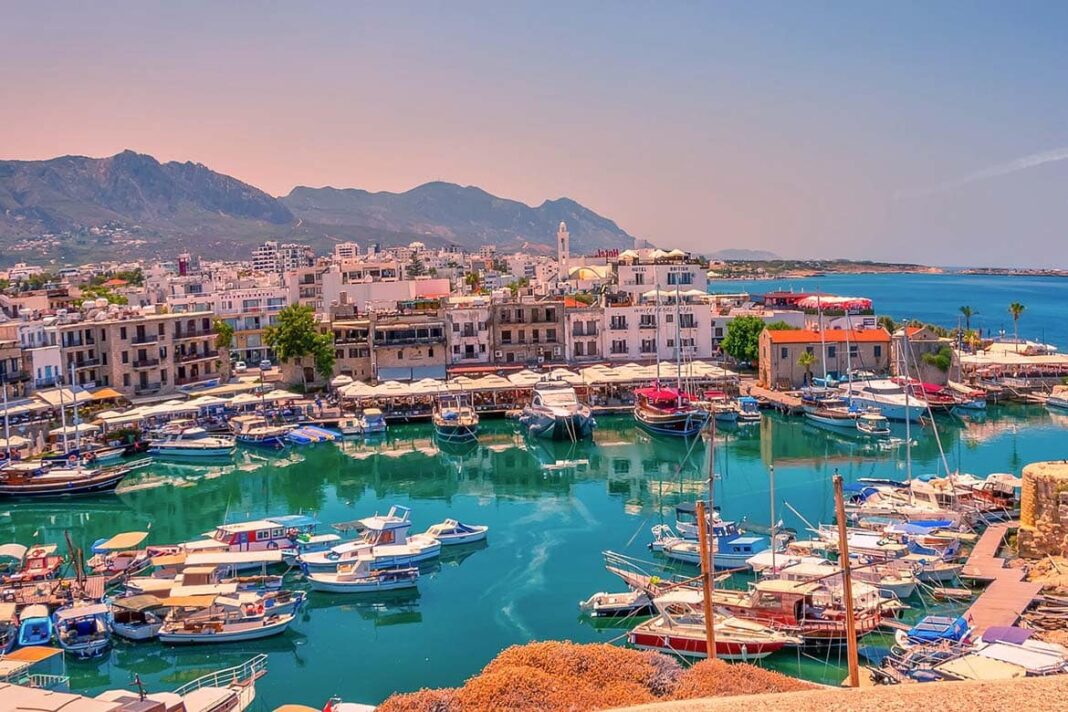Cyprus, a Mediterranean island nation, is now under the spotlight for its extensive involvement in facilitating the movement of illicit funds for Russian President Vladimir Putin’s regime and other dictators. The International Consortium of Investigative Journalists (ICIJ), in collaboration with Paper Trail Media and 67 media partners, including The Indian Express, has brought to light the intricate web of financial activities in what is known as the “Cyprus model.”
Cyprus Model Unveiled
A large part of Cyprus’s economy is driven by its financial industry, including banking and investment services. The financial sector is much bigger compared to other sectors like manufacturing or agriculture.
Cyprus has financial laws that are not very strict when it comes to revealing details about money transactions. Financial disclosure laws are rules that require people or businesses to provide information about their financial activities. In Cyprus, these laws are not very strong within the European Union (EU), making it easier for financial activities to happen with less scrutiny.
Cyprus has become a preferred destination for Russians to invest their money. More than $200 billion of Russian money has flowed into Cyprus. This money has had a big impact on the country’s economy and has given Russian wealthy individuals, known as oligarchs, a significant role and influence in Cyprus.
The large amount of money coming into Cyprus has raised worries about illegal activities, particularly money laundering. Money laundering is when people try to make illegally gained money look legal by moving it through complex financial transactions. The concern is that Cyprus might be indirectly involved or turning a blind eye to such activities.
Sanctioned Russian Clients
The report identifies 67 Russian billionaires, along with their family members, implicated in the Cyprus Confidential documents. Among them are 44 Politically Exposed Persons (PEPs), individuals linked to state-owned entities or public officials. The investigation details nearly 800 companies and trusts registered in secrecy jurisdictions, owned or controlled by Russians who have faced sanctions since 2014.
PwC’s Role in the Money Trail
Notably, the investigation uncovers the pivotal role played by global accounting giant PwC, previously known as PricewaterhouseCoopers, through its Cyprus office. PwC Cyprus, comprising 1,100 employees, allegedly assisted Putin allies during Russia’s invasion of Ukraine. The report provides specific instances, such as PwC aiding Alexey Mordashov, one of Russia’s wealthiest industrialists, in transferring a $1.4 billion investment out of his name following Western sanctions. The Cypriot Ministry of Finance is reportedly conducting a criminal investigation into these share transfers.
PwC’s Involvement with Sanctioned Individuals
The investigation raises concerns about PwC Cyprus’s association with at least 12 of the 25 Russians who were already under sanctions since Russia’s 2014 annexation of Crimea. It took PwC until a few months after Russia’s 2022 invasion of Ukraine to announce its departure from Russia and cease work for sanctioned clients. Additionally, former partners of PwC Cyprus, now operating under the name Kiteserve, allegedly continued administering companies controlled by oligarchs even after the UK sanctioned them.
Journalist’s Alleged Ties
Hubert Seipel, a German journalist and author known for his access to Putin, has received approximately $700,000 as “sponsorship” from a shell company linked to Russian Oligarch Alexey Mordashov. The funds were reportedly for writing books on the political environment in the Russian Federation, raising questions about the objectivity of Seipel’s work.
Abramovich’s Financial Activities
The report delves into the financial activities of Roman Abramovich, a member of Putin’s inner circle, with a net worth of $9 billion. It exposes a decade-long pattern of payments worth tens of millions of British pounds, routed through offshore vehicles owned by Abramovich and omitted from Chelsea’s financial accounts. Money Laundering through Football clubs is a common topic of discussions. The Premier League is already investigating Chelsea’s finances.
In conclusion, the Cyprus Confidential investigation not only unravels the extensive role played by Cyprus in facilitating illicit financial activities for Putin’s regime and other dictators but also sheds light on the involvement of global entities like PwC Cyprus in these murky dealings. The intricate web of financial transactions and the association with sanctioned individuals underscore the need for international scrutiny and regulatory measures to curb such illicit practices.



